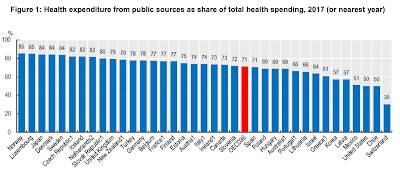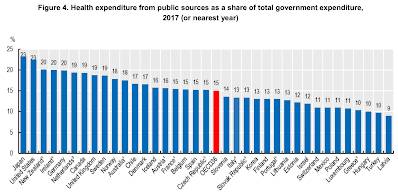
Funding the World Health Organization’s Pandemic Treaty
While its implementation is pretty much being ignored by the dinosaur media, the World Health Organization’s pandemic treaty moves ever closer to being adopted by the elected non thinkers that are in control of the Western world today. There is one key aspect of the treaty that should be important to all of us given that we, the taxpayers of the world, will be paying for whether we like it or not.
Let’s start by looking at the background of the pandemic treaty known internally as the “WHO convention, agreement or other international instrument on pandemic prevention, preparedness and response” aka WHO CA+ and why the World Health Organization believes that its implementation is a necessity:
“In recognition of the catastrophic failure of the international community in showing solidarity and equity in response to the coronavirus disease (COVID-19) pandemic, the World Health Assembly convened a second special session in December 2021, where it established an Intergovernmental Negotiating Body (INB) open to all Member States and Associate Members (and regional economic integration organizations as appropriate) to draft and negotiate a WHO convention, agreement or other international instrument on pandemic prevention, preparedness and response, with a view to its adoption under Article 19, or under other provisions of the WHO Constitution as may be deemed appropriate by the INB.”
Obviously, implementing this formidable pandemic treaty will require ongoing funding. Under Article 19 “Sustainable and predictable financing” of the Zero Draft of the WHO CA+ , we find this with my bolds:
“1. The Parties recognize the important role that financial resources play in achieving the objective of the WHO CA+ and the primary financial responsibility of national governments in protecting and promoting the health of their populations. In that regard, each Party shall:
(a) cooperate with other Parties, within the means and resources at its disposal, to raise financial resources for effective implementation of the WHO CA+ through bilateral and multilateral funding mechanisms;
(b) plan and provide adequate financial support in line with its national fiscal capacities for: (i) strengthening pandemic prevention, preparedness, response and recovery of health systems; (ii) implementing its national plans, programmes and priorities; and (iii) strengthening health systems and progressive realization of universal health coverage;
(c) commit to prioritize and increase or maintain, including through greater collaboration between the health, finance and private sectors, as appropriate, domestic funding by allocating in its annual budgets not lower than 5% of its current health expenditure to pandemic prevention, preparedness, response and health systems recovery, notably for improving and sustaining relevant capacities and working to achieve universal health coverage; and
(d) commit to allocate, in accordance with its respective capacities, XX% of its gross domestic product for international cooperation and assistance on pandemic prevention, preparedness, response and health systems recovery, particularly for developing countries, including through international organizations and existing and new mechanisms.“
Notice that under subsection (d), the zero draft does not specify the actual percentage of a nation’s GDP that it must commit to spend on pandemic prevention, preparedness and response, rather it is listed as “XX%”. This bears watching as we may find that our rulers have made commitments that are far in excess of what is fiscally reasonable, particularly given the high and growing level of government debt today, to the World Health Organization, a non-elected, non-governmental body that has proven itself to be incompetent during the COVID-19 pandemic and that it functions as the health arm of Bill Gates.
Under the pandemic treaty, signatories will be obliged to spend no less than 5 percent of their current health expenditures on pandemic preparedness. This will obviously vary by nation since, as shown on these graphics, health expenditures from public sources as a share of total health expenditures vary greatly by nation:
Many nations are already suffering from underfunded or poorly funded public health care systems (i.e. Canada) with wait times, physician and nurse shortages and other negative issues plaguing the health care systems. The very thought of allocating additional taxpayers’ dollars to the World Health Organization should, at the very least, make all of us very angry and we should be insisting that our politicians do not accede to the pandemic treaty since they have already proven themselves to be inept when it comes to effectively operating publicly-funded health care systems.


Be the first to comment